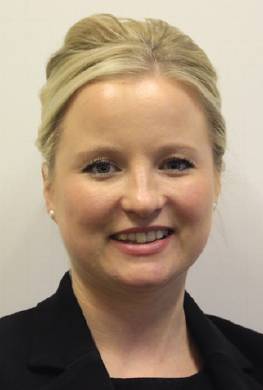Chartered Legal Executives as coroners
Coronial work shadowing: observing a day in the life of a coroner
Louise Turner spends a day watching HM Senior Coroner for West Sussex, Penelope Schofield, at work and recounts her experiences.
 About the author: Louise Turner FCILEx is membership development manager at CILEx.
About the author: Louise Turner FCILEx is membership development manager at CILEx.
See also 'In conversation with the Chief Coroner of England and Wales' in this issue.
Penelope Schofield: her professional life history
Who? When? Where? How? These are the questions every coroner asks themselves in every case they deal with. They must establish who has died; when they died; where they died; and how they died.
I learnt this from HM Senior Coroner for West Sussex, Penelope (Penny) Schofield, when I had the pleasure of work shadowing her for the day on 26 November 2019. I was first introduced to Penny by the Coroners’ Society of England and Wales. Penny told me that she had studied with CILEx which, in fact, launched her legal career.
She began working in the magistrates’ court with the legal clerk doing court clearing. Later in her career, she moved to work for the Crown Prosecution Service (CPS), which supported her to cross-qualify as a solicitor. In total, Penny worked for the CPS for 10 years. She went on to work in private practice undertaking white-collar crime, and later housing work, before joining the multiagency, anti-social behaviour team in Portsmouth as their lawyer. It was at this time - and purely by chance - that the Portsmouth coroner was looking for an assistant to cover on an ad hoc basis. Penny had no experience, but she made up for this with her enthusiasm to undertake the role and her office was only a minute’s walk from the coroner’s office, so was available at short notice. As soon as she started undertaking the work, she knew that this was the job she had always been looking for.
Penny went on to work as an assistant coroner in Portsmouth for about three years before being appointed as the senior coroner for West Sussex. She also managed to have four children during her legal career. She reported that her maternity leave was shortly after taking up her post in West Sussex, and she returned after only six weeks, and then - having given birth to twins the following year - returned to her post after only three months! She is quite remarkable.
Penny explained that the job of a coroner will not suit everyone. It is emotional, demanding, stressful, but extremely interesting and rewarding. Every case is different, and not all cases end up with an inquest.
Early decisions involve deciding whether or not a case is a natural death, whether there needs to be a post mortem and, following the post mortem, whether the matter needs to proceed to inquest. Some inquests can involve just a family member attending, but in other cases you can have lawyers representing all the interested persons involved.
In every case you need to appreciate that there is a family grieving, and there needs to be great sensitivity. The cases are varied, and you may not always be dealing with current deaths. Penny talked about a historical death that she was dealing with from the Second World War, where a plane wreckage was being excavated and it was suspected that there would be body parts located in the debris.
Whilst there is statutory guidance given to coroners to help them in their work, much of the work is not prescribed and, therefore, the role may not suit an individual who is only comfortable working within specific guidelines.
Knowing well the CILEx route to qualify as a lawyer, Penny observed that CILEx members would make excellent coroners, due to the vocational way they have entered the legal profession and all the experience they have picked up along the way. It seems common sense and client care experience go a long way when considering whether someone is right for the job. Local knowledge too is important: coroners must know their jurisdiction and place importance on serving their community.
